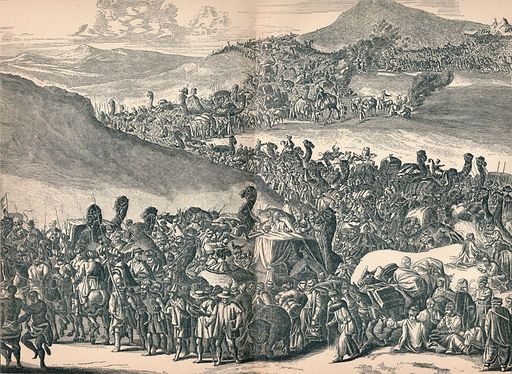A skewed rating scale of A, B, C is strangling Africa's development dreams.
Rising from the ashes of colonialism, where resources were looted, fledgling African economies are still struggling to steady the boat in a storm of climate change and weak governance systems.
Global credit rating agencies like S&P, Moody's and Fitch consider these very conditions to assign the already suffering countries unfavourable grades that translate into what economists bluntly call "junk status".
While the continent sits on vast untapped potential, African economies at the receiving end of poor credit ratings are consigned to financial purgatory — a place where borrowing costs soar and investment flows dry up.
"Only 33 of Africa's 54 countries are currently rated. Lamentably, only two of those are rated as investment grade," Raymond Gilpin, UNDP's chief economist, tells TRT Afrika.
The Indian Ocean Island of Mauritius and Botswana are the only two that have secured favourable credit ratings, giving investors confidence that they can repay their debts.
Their borrowing costs are, therefore, significantly lower. Also, they benefit from relatively higher investment inflows.
The highest rating, AAA, guarantees the most investment at the lowest cost. Grade B- is considered the lower medium grade.
"Everything below that is non-investment or speculative grade," Gilpin explains, noting that 31 African countries fall in this category.

Cost of borrowing
Over the past three years, the average interest rate on loans in Africa has been approximately 10%. To put things in perspective, Germany’s is 0.75%.
"We see these differentials as not just problematic, but also as barriers to the resources that Africa needs to invest in things like green transition, energy security and infrastructure that connects countries both physically and digitally. These are things the continent needs to fulfil its potential," Gilpin explains.
So, what happens to the 19 other countries on the continent that are not yet rated?
Economic trends suggest investors wouldn't even consider hedging their bets on non-rated countries. "We have a picture of a continent that is primarily non-investment grade," Gilpin tells TRT Afrika.
S&P, Moody’s, and Fitch have been accused of bias, which economists believe is a result of flawed methodologies arising from their limited presence on the continent.
"At UNDP two years ago, we did a report that highlighted some of the inherent subjectivity in the methodology. In our estimation, this cost 19 African countries US $74 billion," says Gilpin. "That is a lot more than the entire continent receives in development assistance in a year."
Gilpin explains that much of the subjectivity that influences the decisions of credit ratings agencies is linked to data gaps.
"The credit ratings process is new for most African countries, so they really don't know how to tell the story, and a lot of the data is not as timely as we would like it to be," he says.
With sufficient information that tells the forward-leaning story of the countries, the continent would display an investment-friendly face to the market.
"The African Union has been outspoken in its need to address this. South Africa's G20 presidency is also prioritising this conversation. The continent needs the red flags the least, because for the next stage in the continent's development, we need massive amounts of investments," Gilpin tells TRT Afrika. "The gap is roughly between $200 and $300 billion a year."
Until Africa receives favourable ratings, the cost of credit will continue soaring and investment flows will diminish, causing further stagnation in the quest for development.
As the Vatican-backed report puts it, "Global finance should serve people and the planet, not punish the poor to protect profits."




















